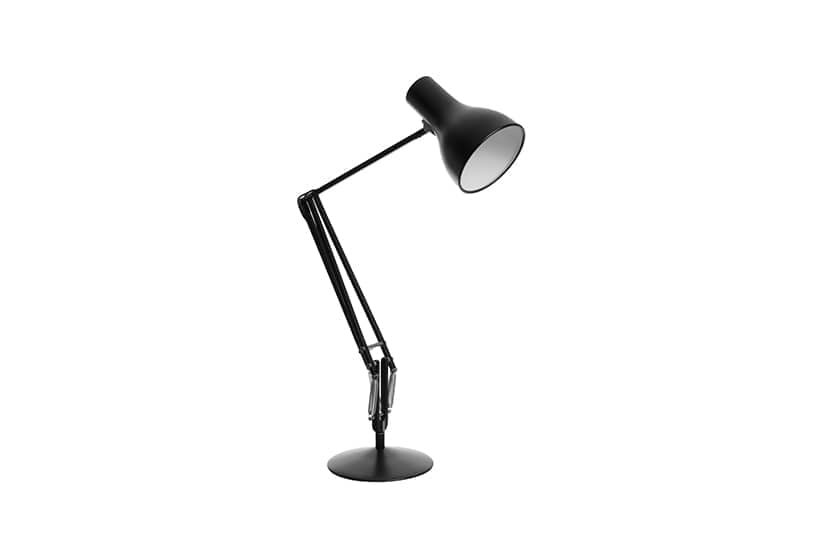The tide of survival bias has retreated and left the Anglepoise a design classic. Its contemporaries from the mid-1930s, a BSA Scout and de Havilland Dragonfly, for example, have become quaint antiquities. Almost unmodified since 1934, it is that rarest of things: a design beyond fashion. And it has totemic qualities. For my generation, the possession of an Anglepoise as much as a set of David Mellor cutlery or even a chicken brick was a ticket to the modern world where perfect products made you happy. Or so the theory went.
To understand that modern world, now deceased, you need to appreciate basic analogue systems such as the rivet and the spring. The rivet is a bonding technique that made petrol tankers and submarines possible. A spring is an elastic mechanism for absorbing energy, usually made from coiled metal. Springs first appeared in door locks in the 15th century. They are fundamental to car suspension. Without springs your car would hit a bump and turn over.
This new book, which should of course have been called ‘The Light Stuff’, is an account of how the ingenious exploitation of springs created the world’s favourite desk light. Without springs, the Anglepoise’s unique positioning system would have been impossible. Can the story of a lamp sustain an entire book? The improvident Dorothy Parker was once forced by a mischievous literary editor to review a book on money management. She simply wrote: ‘This book tells me more about accounting than I care to know.’ That’s almost the case here, except Jonathan Glancey writes with infectious gusto while releasing impressive deposits of rare information.
In terms of reputation and recognition, the Anglepoise may be the most successful lamp ever. Users — people we might call the Light Brigade — include the Queen, Picasso, Lloyd George, Jim Callaghan and James Bond. In the second world war, Wellington bombers flew into occupied Europe, their navigators’ stations illuminated by Anglepoises secured to their instrument panels. They were also used in Harrods’s beauty parlour.
Sometimes they were even controversial. In 1948, the BBC’s head of Variety, alarmed by the intimate, seductive pool of light shed by the Anglepoises of Broadcasting House, was concerned their use might encourage unclean thoughts and facilitate carnal practices. Even today, switch on your Anglepoise and you create an oneiric world of solitary comfort.
Was its cleverly adaptable spring mechanism based on the anatomy of the human arm? Often, design classics depended on surprising sources. Le Corbusier’s houses may have been machines-for-living-in, but their form was influenced by glamorous ocean liners. The tubular steel chairs of the Bauhaus were inspired by bicycle handlebars. The famous chair Charles Eames designed for Billy Wilder was intended to replicate the cocooning effect of a baseball catcher’s mitt. Stirling Moss’s dining table in his Mayfair pad, which travelled up and down like a Wurlitzer, was inspired by the Ratcliff rising tailgate you find on HGVs.
But the Anglepoise was more purely functional, something which has surely contributed to its enduring appeal. Its references were not to the human arm but to the statics and dynamics of springs, which fascinated its designer George Carwardine. No technocrat, he was a brown-coated artisan-engineer, enthralled by the almost mystical capacity of well-organised springs to achieve stasis in an articulated system.
He had success as a designer of car suspensions, for Morris and others. His ‘constant spring’ idea was patented in 1932 as an ‘Improvement in Elastic Equipoising Systems’. That year his workshop manufactured a work lamp using this principle. Two years later, he licensed his design for mass production to Herbert Terry & Sons, a spring manufacturer in Redditch, Worcestershire, once a capital of manufacturing excellence. Springs? Think bicycle seats.
It is not friction in the joints of an Anglepoise that allows it to be moved into any position and remain there, but a compromise of finely balanced forces. It is not a human arm, but a graphic of controlled energy. There have been rivals and imitators — the Bestlite of Birmingham and the Norwegian Luxo — but the Anglepoise is paramount.
However, ‘design classic’ is an expression that needs unpacking. ‘Classic’ suggests permanence, but ‘design’ always suggests making things new, since designers are a fidgety lot. Thus there is an internal contradiction. I sometimes think the mysterious ability to transcend the depredations of time may be the only useful definition of what we actually mean by design.
In the (admittedly small) history of work light literature, Glancey’s account is unlikely to be bettered. However, his enthusiasm allows a certain amount of padding — distances in miles being parenthetically explained in kilometres, for example. And chances to contextualise the Anglepoise with references to his passion for cars, trains and planes are rarely ignored. ‘When I restored my first, sixth-hand Jaguar…’ he starts to tell us.
But an elegiac undertow tugs at the surface in this jolly story. Terry’s was sold to the Associated Spring Corporation of Bristol, CT, in 1971. Family members established Anglepoise as a separate business in 1975, although most of the production is now in China, not Worcestershire.
Spring Light illuminates what was once achieved, but has now gone. Design classics are things of the past. The book is best read alone, in the inimitable glow of an Anglepoise.






Comments